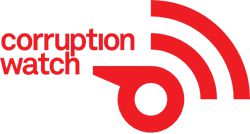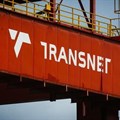Transnet execs closer to Gupta network than they let on - Zondo report

Commission chairperson Acting Chief Justice Raymond Zondo notes in the report that a number of key appointments and removals of both members of the Transnet board and its executive management were done in line with the state capture project that benefited the Guptas, and was facilitated by Essa.
New board
Among these was the appointment of Iqbal Sharma in December 2010 as one of the members of a new board. Even at this point in time, he shared several business interests with Essa, according to the evidence gathered by the commission. One of these, a company named Elgasolve in which both had shareholding, was also a majority shareholder in VR Laser Services, a contractor to Transnet in the period when Sharma chaired the board acquisitions and disposals committee. Sharma only declared his directorship in Elgasolve in 2013.
Some six months after the board took office, in July 2011, Gigaba’s special advisor Siyabonga Mahlangu had sought, through a memorandum prepared within the department of public enterprises, to have Sharma replace Mafika Mkwanazi as board chairperson. The move was blocked by Cabinet, but soon afterwards two replacements were made to the board in the form of Yasmin Forbes and Nishi Choubey, the latter a former employee of Gupta-owned Sahara Computers.
“The memorandum also recommended the removal of Mr Don Mkhwanai (who had seriously criticised the process that led to the recruitment, selection and appointment of Mr Molefe as GCEO) and Ms [Tembakazi] Mnyaka (whose name was subsequently struck out) as non-executive directors only six months after their appointment in December 2010.”
Molefe’s own appointment in February 2011 came about after he was nominated by Sharma, who vouched for his performance at the Public Investment Corporation. His appointment did not follow an open recruitment process, and was first announced by the Gupta-owned New Age newspaper in December 2010. Zondo notes that the appointment would most likely have been pre-determined among several players who have in common close ties to the Guptas.
Not a coincidence
“It is unlikely that the person who became the GCEO of Transnet (and later the GCEO of Eskom) was nominated by a Gupta associate by chance. More likely, the role played by Mr Essa and Mr Sharma in advancing Mr Molefe was part of a bigger strategy by the Gupta enterprise to capture Transnet.”
Essa appears to have gained influence over major transactions at Transnet around October 2011. His proximity to Molefe, however, appears to have been less than what it was with Gama and Singh. Essa was appointed at this point to the board of another state-owned entity (SOE), Broadband Infraco (BBI), by then public enterprises minister Malusi Gigaba.
“This SOE had some part in the questionable decision of Mr Molefe on 20 November 2013 to reverse the award of the IT network services contract to Neotel [concluded during a period when he was on leave, according to the testimony of then chief information officer Sharla Chetty, who acted in Molefe’s post] and the appointment of T-Systems together with BBI in its place,” Zondo writes in the report. Essa was linked to T-Systems through a company called Zestilor which was owned by his wife. T-Systems would later cede a component of its contractual rights to Zestilor in 2015.
Procurement contracts
The ambitious locomotives procurement, however, was where Essa would play the most prominent role. He arranged a meeting with Singh and Niven Pillay of Regiments in December 2012, after Singh had been appointed permanently as GCFO, and days before Regiments was appointed the supplier development partner (SDP) of international advisory firm McKinsey. The advisory firm had been appointed to provide services related to the business case that Transnet needed to develop ahead of the multi-billion rand procurement project. Evidence heard from several witnesses revealed that no open tender process was undertaken to appoint Regiments.
Gupta-linked support was now firmly in place within Transnet, Regiments – to which Essa was added as a director – and later Trillian, which took over Regiments’ SDP contract in 2016 through a controversial cession agreement years after the procurement process began.
“Mr Essa worked closely with two consulting firms, Regiments and Trillian, both of which, with his help, were awarded strategic consulting contracts with Transnet. These contracts put them in a position to wield considerable influence over the financial, strategic and procurement decisions of Transnet.”
The commission’s money flows work stream, which included an investigation by forensic investigator Paul Holden, tracked the fees paid to Regiments and Trillian, and subsequently to Essa, before making their way into local and international banking facilities believed to have been established for laundering.
Singh, Zondo found, was useful in approving the necessary payments related to the various transactions over the period of the locomotives procurement process. Documents contained in the Gupta Leaks tranche, showing invoices and flight details, revealed that Singh had numerous travels to Dubai, which became the Guptas’ base later, between 2014 and 2015 and that on some of these occasions, he travelled on the same flights as Essa, and on one occasion also with Rajesh Gupta. A closer look at his personal finances also raised eyebrows, Zondo noted.
Other income sources
“In just over three years, Mr Singh accumulated R19m in a current bank account as a result of spending virtually none of his remuneration, indicating that he had other sources of money besides his salary. The fact that this account was not an interest-bearing account obviated his declaring income from it in his tax returns. Mr Singh maintained that he funded his living expenses from savings held in other bank accounts.”
In Gama’s case, Zondo made the link from a detour he took in early 2016 from the World Economic Forum to Dubai, where he stayed at the Oberoi Hotel at the same time that Essa was also a guest there. This was weeks after he had authorised a R93m payment to Trillian for negotiating a R12m club loan that partly funded the locomotives procurement.
Zondo notes: “There was no evidence of Trillian having worked on the club loan. R74m of the amount paid to Trillian was laundered to Albatime, a company forming part of the Gupta racketeering enterprise.”
Shortly after the Dubai meeting, Gama was promoted officially to the position of GCEO, having acted since the departure of Molefe to Eskom in April 2015. This appointment too did not follow an open process, and was defended by then board chairperson Linda Mabaso in an affidavit to the commission in which she stated that her board had not been aware of Gama’s previous transgressions and two failed ascents to the position of GCEO from that of CEO of Transnet subsidiary, Transnet Freight Rail.
This article was originally published on Corruption Watch.
Source: Corruption Watch

Corruption Watch (CW) is a non-profit organisation launched in January 2012, and operates as an independent civil society organisation with no political or business alignment. CW is an accredited Transparency International chapter that fights against the abuse of public funds, relying on the public to report corruption. These reports are an important source of information to fight corruption and hold leaders accountable for their actions.
Go to: www.corruptionwatch.org.za


























